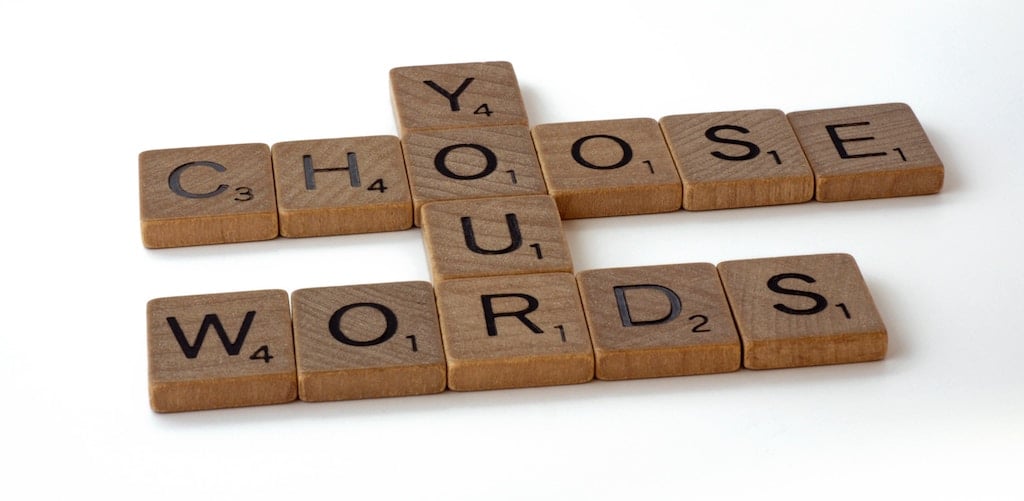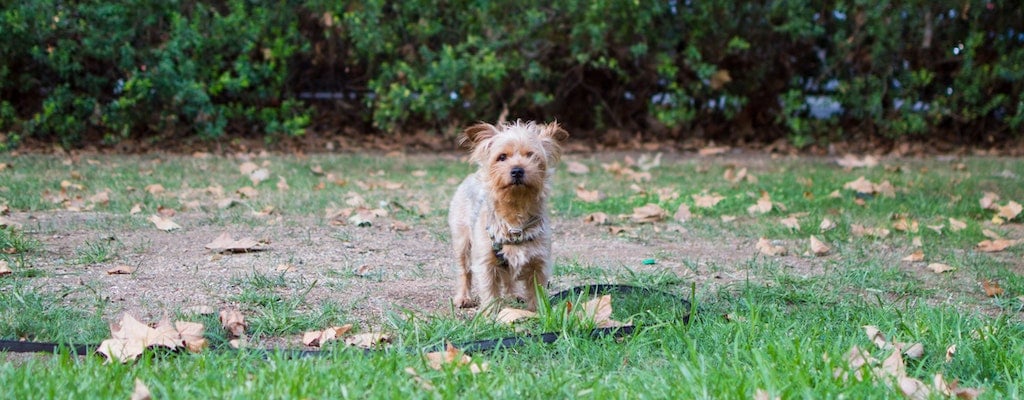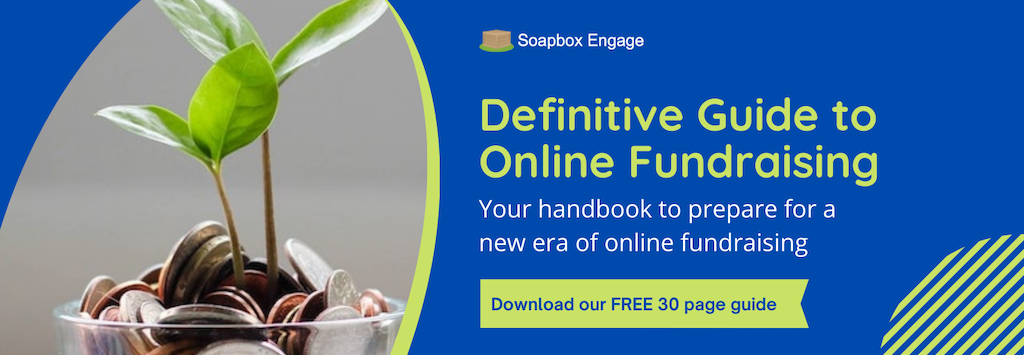
One of the most critical factors in fundraising is the wording you use to ask for donations. Whether you are crafting an email to potential donors, a social media post, an invitation, or the donation page for your website, your wording impacts the outcome.
How you ask is just as important as who you ask to support your organization. As Hamza Yusuf said, "Don't ever diminish the power of words. Words move hearts, and hearts move limbs."
It comes down to this: you need strategy and the right words to inspire your partners to donate. Here are five easy ways to boost your wording when asking for donations.
Table of Contents
- Using "you"
- Ditching "donate"
- Including "because"
- Deliver a "little"
- Giving "thanks"
- Donation solicitation FAQs
"You" Is Your Best Friend When Choosing Your Wording For Donations

It is important to use personal wording to ask for donations. "You" is one of the most powerful words in the English language. It creates a one-to-one conversation. Tom Ahern, a public speaker, and fundraising coach, says, "You" is the single most profit-generating word in advertising." The same applies to the nonprofit world.
Using the word "you" grabs your donor's attention and helps people see themselves as part of the solution. Many nonprofits give their donors credit for funding the work. Go one step further. Help your donors realize that they are the hero in the story--without them, the work does not get done.
Make sure you do the "you test" with all your writing. Circle or highlight each time any form of the word "you" appears in your written piece (you, your, yours, etc.). If you see circles or highlights throughout your writing, then it passes the "you test." If there are large chunks of text that do not have any circles or highlights, then the piece does not pass the "you test."
Of course, some content, like a story, cannot always directly pass the "you test." Make sure everything you write to your donor speaks directly to them and includes "you" language as much as possible.
Donation Messages Examples
Instead of writing, "We end childhood hunger" or, "Our nonprofit has the solution to the problem of hunger in the classroom," substitute "You." Write, "You can end childhood hunger." "You are the solution to the problem of hunger in the classroom."
Ditch "Donate" When Choosing Wording For Donations

This might surprise you, but the word "donate" kills the donation vibes. Instead, choose words like partner, give, and support. "Donate" gives the impression that you only want (or need) their money. Words like "support" and "partner," followed by the name of your cause or campaign, can increase your donations significantly because they invite people into a relationship.
Remember, the goal is to authentically build trust and a long term relationship with your supporters.
Also, include words and phrases connected to success. A study of more than 45,000 projects on Kickstarter discovered that ideas using success language in their descriptions and invitations were more likely to reach their fundraising goals.
Phrases like, "hope to get" or "we long to" lacks passion and confidence that your project is worth the investment. It also implies that you don't have a concrete goal for WHEN you receive the funding. Your confidence--or lack thereof--is contagious. Write and invite with confidence!
Also, avoid negative phrases when asking for donations. One option might be to write, "without your support, we will not be able to end hunger in our schools." We can improve this sentence by saying, "You can put an end to hunger in our schools today by partnering with School Lunches Organization."
Use smart but simple wording to ask for donations. Capture their imaginations and invite them to join you in your movement.
Donation Messages Examples
"We are hoping to raise $5,000 to ensure every child has a healthy school lunch" is a good start. "Please consider a gift of $50 because children in our schools are going hungry."
"Because:" Give A Reason When Choosing Your Donating Wording

This little word packs a big psychological punch! Moms can get away with just saying, "because I told you." You will need to put a little more thought into it.
A fascinating study asked participants to see how willing people are to let others cut in line to make copies at a copy machine. (The study took place back when people waited for such things, but the research still stands.)
The participants in the study first tried to cut in line by politely asking, "Excuse me. I have five pages. May I use the Xerox machine?" Surprisingly, 60% of people allowed the participant to cut in line. But that number jumped to 94% when the participants gave a reason for needing to cut in line! "Excuse me. May I use the Xerox machine because I am in a rush?"
The word "because" increased the success rate in the study by over 30%! Dr. Langer demonstrated that people value having a reason to do (or not do) something. As you choose your wording to ask for donations, include a reason! Give your donors a strong "because."
Include "because" in as many of your written communications as possible. Instead of having people check a box that says, "Yes, I want to donate," change it to, "I want to donate so every child will have a healthy school lunch." With this small change, you connect their donation with a specific outcome. You are naming their "because."
If you are having trouble finding your "because," think about how you want your donors to answer the question, "Why do you give to this organization?" Hopefully, you have a very clear and passionate answer to that question.
Donation Message Examples
Instead of writing, "Today I am sharing little Bobby's story with you," make it more compelling! "Today, I am telling you about little Bobby's story of being hungry because he needs your help."
"Our animal shelter is full" might prompt some people to donate or adopt, but a more powerful appeal includes a reason. "Our animal shelter is full, and we need your help because every puppy deserves to have a loving human."
Change your words asking for donations to include a "because" as well. "Please consider giving a gift of $300 because our children need your help."
"Just $5 will help us provide a school lunch for Bobby," can pack a little more punch. "Your support of $5 will provide Bobby with one school lunch because no child in our county should go hungry."
Don't forget to change the language on your donation landing pages, too.
"Little" Makes A Big Difference In Wording To Ask For Donations

Fundraising experts differ a little on this recommendation. In the past, it was frowned upon to use phrases like, "every little bit helps." First, it's not really true. If you don't raise enough support, you won't accomplish your goal. It also diminishes the impact of your donor's gift by calling it "little."
However, new research shows that "adding a minimal parameter to the gift solicitation" got better responses than donation requests that did not include parameters. By making a minimum request, you help people understand what you are asking.
Using words like "small" and "little" help people view their gift as a small act instead of an inconvenient sacrifice. Reminding people that even a small action is a great start makes them more likely to say "yes." Asking for money online in any type of campaign can be tough, so taking small steps to make the decision easier for donors is a no-brainer.
Be wise about where you use these words. You don't want to minimize generosity accidentally. Help them understand that even a small "yes" is essential to reaching your goal.
Donation Message Examples
Change "Will you give $5 to provide a school lunch for Bobby?" to "A small gift of $5 will provide a healthy school lunch for Bobby."
"Thanks": The Key To Wording For Donations

Gratitude is an important factor when asking for donations. Studies show the three primary things donors want to receive from charities they support all revolve around gratitude.
Donors want to be thanked in a timely and personal manner that reflects the impact of their giving. How you say thank-you is likely the single most significant indicator of whether or not the donor will continue to give.
The biggest reason you should say thank you is it's good manners, and it demonstrates that you care about people. But there is also a lot of psychology in a "thank you" that cannot be overlooked.
Thank donors in your support letters for their previous generosity. This reminds them that they already decided to give to your organization and invites them to remain committed to their partnership. When you thank potential donors for caring about the cause, you remind them of the person they would like to be or imagine themselves to be.
Donation Message Examples
Embed your thank you message in your appeal letter. Instead of saying, "Will you consider supporting our school lunch drive?" thank them for already considering. (The fact that they are reading your letter is an act of consideration.) Change it to, "Thank you for considering joining us in the movement to end hunger in our county schools."
When addressing donors who gave in the past, consider writing phrases like, "Thank you for helping us provide 10,000 school lunches this school year!" "Thank you for your partnership that makes this movement to end hunger in our schools possible. Will you consider partnering to help us feed more children this year because no child deserves to go hungry."
With these five words, you will take your requests for donations to the next level! Remember, whatever you write, make sure you have a specific person in mind and write as if you are writing directly to them. This simple practice will go a long way to improve your overall communication and your wording when asking for donations.
Soapbox Tools To Make Your Life Easier
Now that you are ready to write the perfect request for donations, Soapbox Mailer is an easy solution for your mass email needs. Not only will it ensure you comply with the CAN-SPAM act by adding convenient opt-out options, it will also give you vital information about the effectiveness of each email you send.
Email marketing is very cost-effective and impactful, but it takes time and energy to learn the right way to communicate with your donors. Soapbox Mailer makes it easier to track the results of each email campaign so you can make adjustments and improve the outcome of each email.
You will receive performance metrics for each email campaign that will tell you the open rate, click-through rate, and other relevant information. It is essential to track this information so you can learn what kinds of wording are most effective on your audience and assess other variables. Even the time of day and day of the week that you send an email can affect the outcome.
Donation Solicitation FAQs for the Busy Nonprofit Fundraiser
What do you write in a donation message?
Remember that when you write a donation message, your community of donors is likely full of busy people. Keep the message short, to the point, with a clear call-to-action and a connection between the donor's contribution and the impact of their donation.
How do you format a donation letter?
If you're printing and sending a donation letter, keeping it to one page, succinct, and with plenty of whitespace to make it easy to read. For email donation letters, ensure that your call-to-action is as high up as possible, and keep in mind that the average donor is going to read it via their phone. Including a photo with a compelling message can help people move to making a donation.
What should a donation letter say?
A donation letter to prospective donors should be as personalized as possible, while also including key information about your organization for tax purposes. More personalized call-to-action messages often drive higher donation conversion rates.
How do you write a donation email?
When writing a donation email, consider opening with a surprising or compelling sentence. You're likely not going to have much time to grab the attention of the donor, so a strong subject line will also help. The goal is to get someone to your donation page as fast as possible, where you can more effectively personalize the message and track effectiveness.
How do you say thank you for donations?
After receiving a donation, say thank you as quickly as possible. Faster responses, with key details about your organization's address, name information, tax information, amount given, date processed, etc, is important and can lead to higher future donation rates.
Here are three more resources to help boost your fundraising!
- How To Ask For Donations In An Email: Email is one of the most cost-effective and convenient means of asking for donations. Here are some tips to boost your wording in an email asking for donations.
- Level Up With Peer-To-Peer Fundraising Software and Unrivaled Salesforce Integration: Did you know that giving is contagious? That's why peer-to-peer fundraising is so important. Take your fundraising to the next level with the right tools to help you conduct an effective peer-to-peer campaign.
- 4 Skills Every Development Professional Must Have: Using the right words when asking for donations is fundamental. There are other skills every development professional must have to be as effective as possible. Here are four ways to take your fundraising to the next level.

